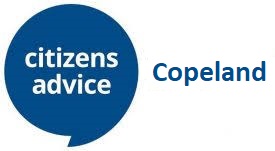Money Confidence
Select advice topic

Talking about money isn’t always easy. So much so that 90% of young people feel uncomfortable discussing finances. It’s become ‘the elephant in the room’ for many. Not talking about money can trap you. People end up keeping things bottled up instead of reaching for help.
We know the result of not seeking help earlier. Last year, we helped 2.66 million people with one-to-one advice. And 1 in 5 young people who come to us have a debt problem. So we know it’s pretty important to reduce the stigma around money. We’ve teamed up with our experts to create the perfect starter guide to talking and finding out about money.
Working out what your finances are
How to decide your budget
One of the first steps to understanding your money is looking at what you have and how to spend the right amount. Budget planners help you understand what you’re earning and spending, and where you might be able to cut costs. You can use the free budget planner on the MoneyHelper website. The planner will be most useful if you give accurate figures. You can use rough figures if you just want a general idea of your budget.
Try to find your most recent:
- bank statements
- Payslips and proofs of income
- debit and credit card statements or bills
- receipts for things you usually pay for
- Make sure you include all your expenses, for example money you spend on your partner or family. If you want to understand your first payslip,you can use our guide for more information.
Finding out if you have any savings you don’t know about
You may have savings you don’t know about. Your parents might have bought Bonds when you were younger or you may have a Child Trust Fund. A Child Trust Fund isn’t as exclusive as it sounds, it was actually a government run scheme. If you were born between 1 September 2002 and 2 January 2011 you may have a Child Trust Fund waiting for you of up to £1000 or more.
If you’d like to find your Child Trust Fund but you’re not sure how, The Share Foundation and Gov.uk can help you.
Working out your credit score
Credit scores are used by creditors to work out how risky it would be to lend to you. For instance, if you’re looking to get a mortgage or a credit card. Credit scores might not seem super relevant to you when you’re in the initial stages of thinking about money. You don’t want to borrow money yet, so why should you care what your score is? Actually, credit scores are important at all stages of life. You’ll often need a decent one for smaller things like a mobile phone contract. Credit scores take time to build and you can take easy steps to improve yours or maintain a reasonable credit score. Credit scores vary from one credit reference agency (CRA) to another. It may be worthwhile to check what information each CRA has about you and see what scores each gives. There are 3 major companies in the UK called ‘credit reference agencies’ (CRAs)that compile the information on your credit report: Experian, Equifax and TransUnion.

How to save money
Tips for your weekly shop
- If you can afford to, bulk-buy foods that don’t go off, particularly if they are on offer
- Use comparison sites to find out which shops have the cheapest products
- Check the reduced section at the supermarket to find great deals
- Don’t go shopping hungry
- Use cash instead of cards so you can see what you’re spending
- Make sure you use loyalty cards, you can either use them to claim money back or swap them for other things, like cinema tickets

